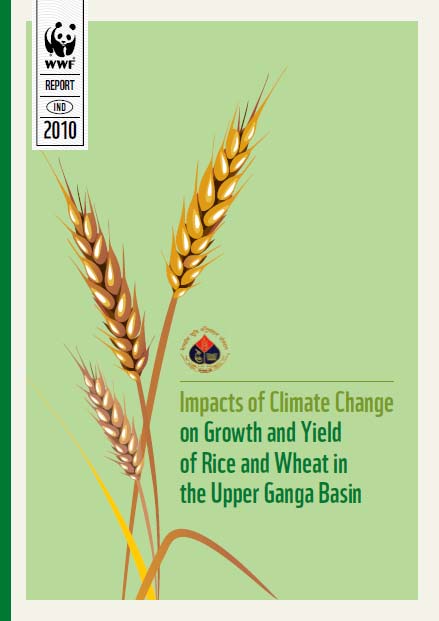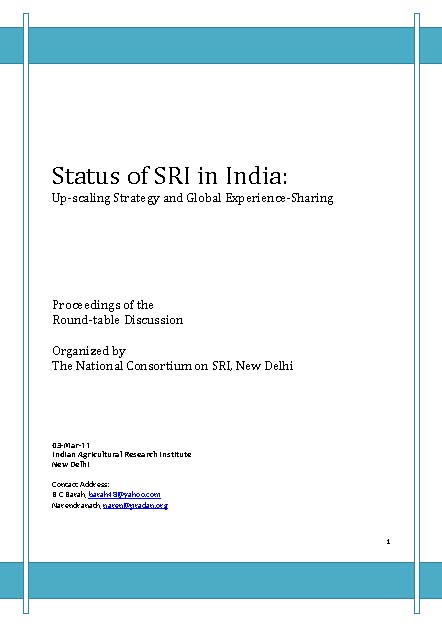Indian Agricultural Research Institute (IARI)
Impacts of climate change on growth and yield of rice and wheat in the Upper Ganga Basin – A study by Indian Agricultural Research Institute
Posted on 26 Jun, 2011 01:51 PM This report presents the results based on climate change scenarios and identifies potential adaptation strategies. The study is part of the ‘Climate Change Impacts on Freshwater Ecosystems in the Himalayas’ (CCIFEH) project, a joint initiative of WWF-India and WWF-Nepal, supported by WWF-Netherlands and aims to study and understand climate change impacts on freshwater ecosystems, livelihoods and the economy.
This report presents the results based on climate change scenarios and identifies potential adaptation strategies. The study is part of the ‘Climate Change Impacts on Freshwater Ecosystems in the Himalayas’ (CCIFEH) project, a joint initiative of WWF-India and WWF-Nepal, supported by WWF-Netherlands and aims to study and understand climate change impacts on freshwater ecosystems, livelihoods and the economy.
Change in climate conditions and the frequency of natural disasters in recent times has made it imperative to find lasting adaptation solutions for the agriculture sector. Given that almost 60 per cent of the country’s population relies on this sector for its livelihood and that it contributes approximately 15.7 per cent of India’s GDP, an analysis of changes which could impact crop yields and subsequently lead to an instable food security scenario is necessary.
Status of SRI in India - Upscaling strategy and global experience sharing - A roundtable discussion at IARI
Posted on 26 May, 2011 08:16 AM The issues of sustainable food security assume national importance, as the country is debating on the crucial National Food Security Bill. Breaking yield barrier, accelerating growth of production and ensuring sustainability are the critical policy concerns in Indian agriculture.
The issues of sustainable food security assume national importance, as the country is debating on the crucial National Food Security Bill. Breaking yield barrier, accelerating growth of production and ensuring sustainability are the critical policy concerns in Indian agriculture.
The roundtable discussion underlined the need to harness the opportunities offered by the System of Rice Intensification (SRI) and its extensions to crop production in many areas. This may help in substantially reducing the need for embedded subsidies in every grain of rice while achieving increases in yield by 15 per cent to 40 per cent or more over present conventional methods. In India about 1.7 million farmers are estimated to have adopted the technique on more than 7.5 lakh hectares across 160 districts, without any major project funding so far. Tamil Nadu and Tripura are the leading states for adoption of SRI, but many others are following suit.